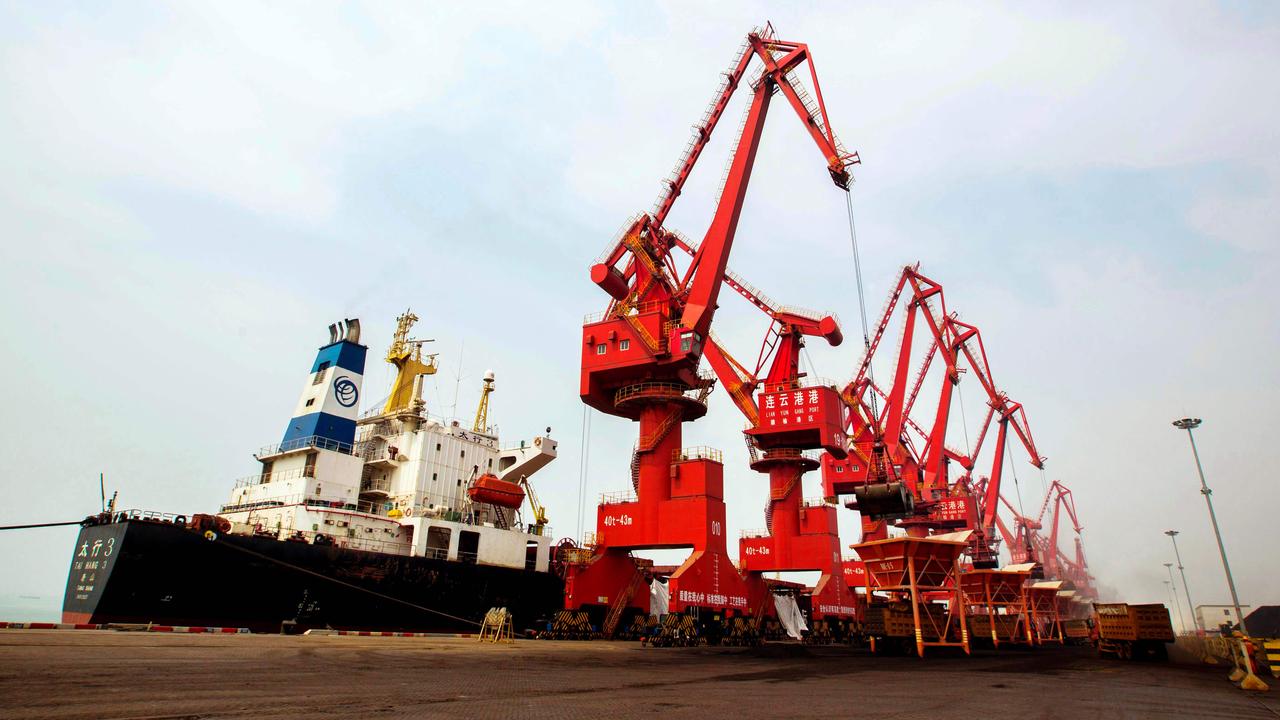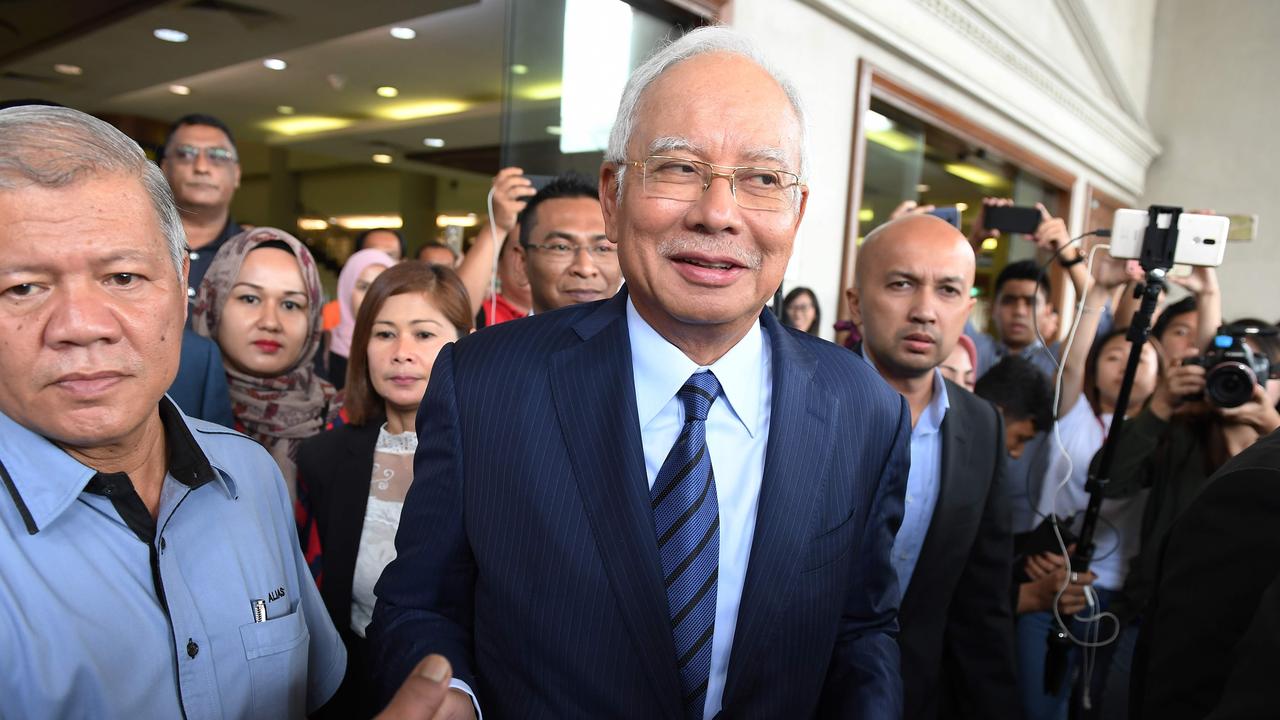Politics, not economics, will guide China’s growth
Xi Jinping and the Communist Party have tightened their grip on power.
Will the Communist Party Congress, which just ended, have any impact on an Australian firm that does business with China?
You bet.
Not that there will be sudden changes. Marx forbid that anything too revolutionary will occur. There’s too much at stake for that.
The congress really confirmed that we’ll be seeing China move in the same direction as in the last couple of years, only more assertively. Politics will have the upper hand over economics, even at times over what may seem like economic expediency. But since Xi Jinping — elevated to communist divinity alongside Mao Zedong and Deng Xiaoping — views pursuing “a better life” for Chinese people as central to the party’s legitimacy, that will ensure the government will guard against any disruption to that process.
Trade, although it plays a key part in opening doors to that better life, did not feature prominently at the congress, and it would seem that Australia did well to conclude its free trade agreement with China when it did.
Beijing is no longer in the mood to make the kind of concessions that our patient negotiation succeeded in winning a couple of years back. The regular reviews that are part of the FTA pattern may prove harder going than we would like.
Xi is — in both political and social justice terms — right to draw attention to the “principal contradiction” that his government is still trying to “harmonise”.
That is, the contradiction between the rush towards wealth, and inequality that can be personal, clan, geographic, sectoral, and above all politically based, since many Chinese view the equation as manifest: party member = access to riches. And the secondary contradiction, on which Xi appears to be persuaded, which is the decline of the environment as material wealth rises.
These contradictions are inevitable, given the breakneck pace of growth without accountability of the leadership within a one-party authoritarian state. There is no doubt that the party is deemed supremely capable of ubiquitous oversight, not necessarily running everything itself but ensuring the lines of accountability are clear, from every institution and individual up to the leadership.
China’s continuing growth will ensure an expanding market. But despite Beijing’s previous vows to refocus the economy from investment and exports to services and consumption, it is under Xi loath to let manufacturing go.
Massive efforts will be made to support the “Made in China 2025” program to upgrade industry, to make intelligent manufacturing the norm in all its industries — with Germany something of a model.
The country is bidding to become the centre of manufacture of hi-tech products that fit both domestic and export priorities including electric and self-driving cars, areas where low-wage competitors won’t be able to displace China for a generation.
Fortunately for Australia, this Chinese government remains sufficiently pragmatic to want to continue or even accelerate its imports of better quality, often even cheaper, inputs from minerals to farm goods.
That’s one of the many differences from the Soviet Union, with its failed attempt to build a largely self-contained economy. China has worked out that certain suppliers can be trusted, and Australia is high on that list.
It remains tough for Australian and other foreign businesses to make money inside China, however. Margins are thin, and conditions are getting harder, especially for firms that are dependent on internet access, given the ever-tightening controls.
The private sector in general is now having to reorientate itself to Xi’s New Era, in which it must defer to the state and the party for policy directions, and be guided by the party committees that are now embedded in 70 per cent of all private businesses in China.
Xi’s focus is on managing the policy suite and trends already in train, rather than in introducing “reforms”. His earlier hopes for “the market” to shoulder more of the burden of building and spreading wealth in China were dashed with the equities crash two years ago, when millions of investors were shocked to discover prices could fall as well as rise.
The answer is control, and state supremacy even over markets, which remain important, but will not as earlier anticipated become the deciding factor in the deployment of assets or of risk.
Guo Shuqing, the top banking regulator, tipped to succeed Zhou Xiaochuan as governor of the People’s Bank of China, said during the congress that it was “not a good sign in terms of competition” that foreign banks’ share of the Chinese banking market had halved over the last decade, to 1.3 per cent. He said that “risks associated with interbank lending and borrowing, wealth management products and off balance sheet assets are the focus of regulatory crackdowns, because they may trigger financial risks”.
He said the China Banking Regulatory Commission that he chairs would make it harder for real estate developers to fund residential projects. The new Financial Stability and Development Committee would, he said, focus on containing risks in shadow banking, the asset management industry, internet finance companies and private conglomerates.
This underlines how pressure is being placed by the party-state on the private sector rather than the state sector that is consuming most of the country’s debt.
Gavekal Research analyst Andrew Batson says that while growth remains the priority, Xi appears to be starting to phase this out. Market-focused economists would applaud, believing the growth obsession has helped pile up debt and distort policy.
But what’s left, Batson warns, may be “a confusing welter of political, social and environmental mandates,” with local officials becoming “risk-averse drones waiting for instructions from above, rather than the entrepreneurial growth drivers of the past.”




To join the conversation, please log in. Don't have an account? Register
Join the conversation, you are commenting as Logout